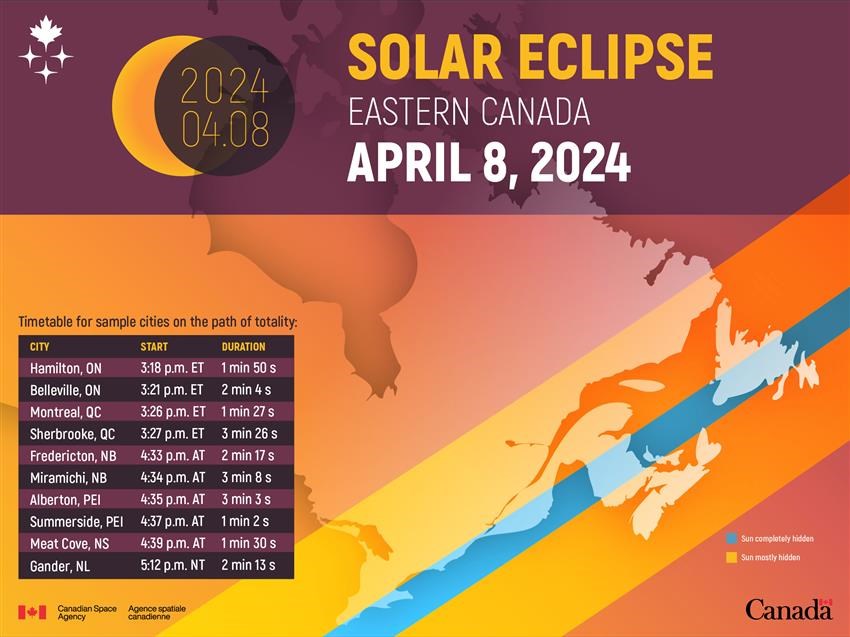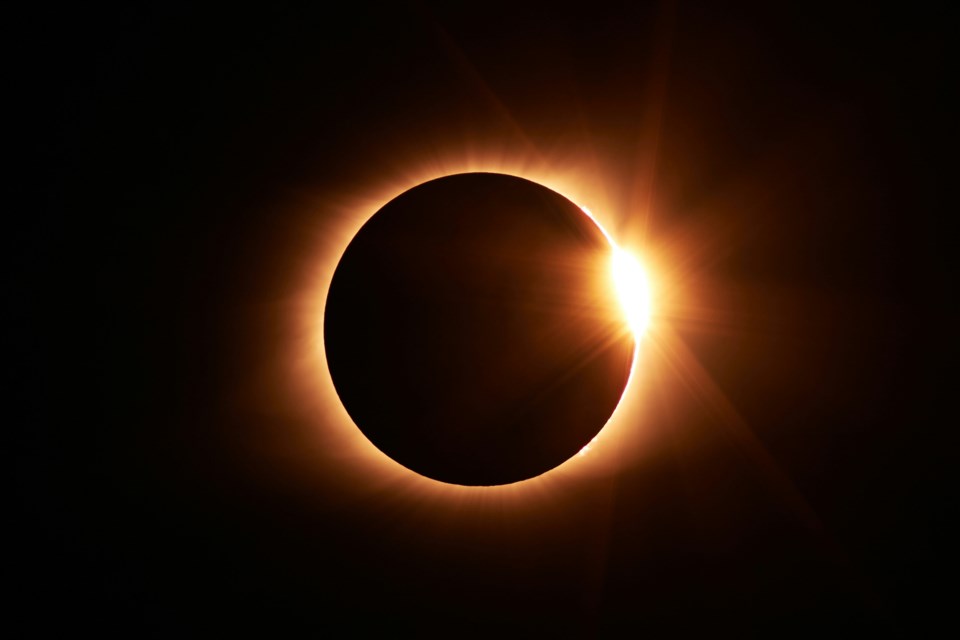On Monday, April 8, sky gazers will be treated to a spectacular celestial event—the occurrence of a solar eclipse. Among the prime locations to witness this phenomenon is Niagara, making it a must-visit spot for astronomy enthusiasts.
Understanding the Solar Eclipse
A solar eclipse is a captivating natural event where the moon moves between the Earth and the Sun, partially or completely blocking sunlight. During a total solar eclipse, the moon entirely covers the sun, creating a momentary darkness akin to nighttime.
Eclipse's Path of Totality
In Canada, the path of totality for the solar eclipse will traverse several provinces, including Ontario, Quebec, New Brunswick, Nova Scotia, Prince Edward Island, and Newfoundland. Cities and towns within this path will experience a few minutes of darkness, while those outside will witness a partial solar eclipse.

Eye Safety Measures
Observing a solar eclipse directly poses severe risks to eye health due to the sun's intense rays. To safeguard your eyes:
-
Avoid Direct Viewing: Never look directly at the sun during the eclipse. Use proper methods to block the sun's dangerous rays.
-
Use Certified Eclipse Glasses: Ensure you use ISO-certified eclipse glasses from reputable vendors. These glasses meet the ISO 12312-2 safety standard and provide adequate protection for viewing the eclipse.
-
Check for Damage: Do not use glasses with scratched or wrinkled lenses. Inspect them for any defects before use.
Where to Find Solar Eclipse Glasses
You can acquire solar eclipse glasses from various sources:
- Suppliers: Look for trusted suppliers offering safe solar filters and viewers.
- Public Libraries: Some libraries may provide eclipse glasses for public use.
- Retailers: Many retailers across Niagara stock eclipse glasses for purchase.
- City/Town: Check with your local authorities for information on where to find eclipse glasses.
Alternative Viewing Strategies
If you cannot obtain proper eye protection, consider alternative viewing methods such as:
- Eclipse Box: Create an eclipse box to indirectly view the eclipse safely.
- Livestream: Watch the eclipse through a reliable livestream source.
Risks of Unprotected Viewing
Staring at the sun without protection can lead to solar retinopathy, causing damage to the retina and potentially resulting in visual impairment. Symptoms may appear hours later, including retinal burns, vision loss, and blurred vision.
Take Precautions and Seek Medical Help if Needed
If you experience any changes in vision after viewing the solar eclipse, seek immediate medical attention. Do not drive and consult with an optometrist or visit a hospital for assessment.
Prepare yourself for this extraordinary celestial event while prioritizing your eye safety. Enjoy the solar eclipse responsibly and marvel at the wonders of our universe safely!




